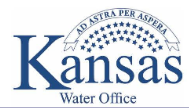From the Office of Public Affairs | http://www.news.ku.edu
Headlines
New book reveals how roads and vehicles transformed colonial societies across Africa
LAWRENCE — A new book from a University of Kansas history professor uncovers how vehicles and the roads they traveled upon began to transform colonial societies across Africa — but rarely in the manner Europeans expected. “This book makes an important point about the way imperialism worked between the late 19th century through World War II, but it also has a lot to say about how we see these dynamics in the 21st century as well,” author Andrew Denning said.
Author shows importance of framing in disability policy discussions
LAWRENCE — Sean Kamperman won’t go so far as to say that framing an argument is half the battle. But a new paper by the University of Kansas English professor published in the journal Written Communication argues that certain key words, topic shifts and other framing maneuvers can serve to “amplify marginalized voices in public debates.”
Full stories below.
————————————————————————
Contact: Jon Niccum, KU News Service, 785-864-7633, jniccum@ku.edu
New book reveals how roads and vehicles transformed colonial societies across Africa
LAWRENCE — Shakespeare wrote, “Kingdoms are clay.” But a new book suggests kingdoms are actually more asphalt.
“European empires of the 20th century were in many ways defined by their projects of motorization and road construction. Through these, colonial officials hoped to develop more efficient ways to exploit and control lands and peoples,” said Andrew Denning, associate professor of history at the University of Kansas.
His latest book. “Automotive Empire: How Cars and Roads Fueled European Colonialism in Africa,” uncovers how vehicles and the roads they traveled upon began to transform colonial societies across Africa … but rarely in the manner Europeans expected. It’s published by Cornell University Press.
When Britain, France, Italy, Germany, Belgium and Portugal started colonizing Africa, they faced a shared “transport problem.” They believed roads would radiate commerce and political dominion, but the colossal scale of Africa introduced challenges.
“These countries encountered a continent that’s far larger than Europe, and they only had a few thousand European officials on the ground to administer their colonies,” Denning said. “So they’re trying to overcome this transport problem to develop and exploit the various kinds of resources — human resources, natural resources — that they desired on the continent, while also connecting their economies and administrations to African settlements.”
Motor vehicles traveling on roads became the solution. Roads were cheaper and easier to construct than railroads and weren’t hampered by the environmental limitations of rivers.
“Roads can really vary in terms of technological complexity. They can be simple: dirt, gravel or packed mud that require little technical input in terms of machinery. Yet they can also be incredibly modern, necessitating heavy input of capital and engineering expertise,” Denning said.
“Oftentimes, we found imperial regimes trying to do this on the cheap. They took what had been paths for porters or animals and tried to quickly retrofit them into something that could be used by automobiles.”
Denning considers the automobile as the representative epitome of 20th century modern society.
“This ‘Fordist’ form of mass consumerism and mass production was pivotal,” he said. “Putting colonialism and the automobile together provoked such interesting issues and questions about who automobiles served and what roles they could play. Motor vehicles really helped to define how empires worked.”
The so-called “scramble for Africa” produced a checkerboard of different European colonies beginning in the 1880s. European powers claimed large swaths of territory through technological advantages including firearms and steamships, among other things.
“This was also a moment of competition between imperial powers in which they realized that if they didn’t claim as much territory as possible as quickly as possible, they might get boxed out,” Denning said. “Suddenly, they’ve claimed all of these lands — which are essentially parceled out on maps in Europe — with very little knowledge of what’s there.”
How did the Indigenous peoples react to such a scramble?
“It’s obviously a matter of hubris to make these claims. Africa is a massive continent, and the Europeans did this under the imagination that these were largely empty lands,” he said. “Indigenous peoples of Africa had all kinds of responses. Many engaged militarily. The Italians were latecomers to the scramble, and when they attempted to conquer Ethiopia in 1896, they lost.”
A KU faculty member since 2015, Denning focuses on 20th century European imperial history. He is also the director of KU’s Museum Studies Program. His previous book, “The Interwar World” (Routledge, 2023), focuses on the turbulent period of 1918-1939.
“The thing that has tied my work together in the last decade is an interest in mobility — how people move, why they move and the ways this mobility is more than just a means to an end. The ways people move really come to affect the way history develops,” he said.
Denning stressed that contemporary society assumes forms of technological and infrastructural development will naturally accrue benefits to states and regimes that control them. However, despite the power and wealth of these developers, what often happens instead is the ground-level people who use roads, ports and railroads affect and frequently undermine a lot of their plans.
“This book makes an important point about the way imperialism worked between the late 19th century through World War II, but it also has a lot to say about how we see these dynamics in the 21st century as well,” Denning said.
“It teaches us about how investments are made and how economic development is fostered by states, while revealing some of the unforeseen consequences those states deal with after they’ve made these investments.”
-30-
————————————————————————
Don’t miss new episodes of “When Experts Attack!,”
a KU News Service podcast hosted by Kansas Public Radio.
https://kansaspublicradio.org/podcast/when-experts-attack
————————————————————————
Contact: Rick Hellman, KU News Service, 785-864-8852, rick_hellman@ku.edu, @RickHellman
Author shows importance of framing in disability policy discussions
LAWRENCE — Sean Kamperman won’t go so far as to say that framing an argument is half the battle. But a new paper by the University of Kansas researcher argues that certain key words, topic shifts and other framing maneuvers can serve to “amplify marginalized voices in public debates.”
His findings “show the importance of having a strategy when you enter these types of conversations and of being prepared to hold your ground rhetorically,” said the assistant professor of English. “You can get knocked off your framing quickly.”
That’s true for anyone, but especially for those among and/or advocating for people with intellectual disabilities — be it autism, Down syndrome or anything else.
The article, titled “Gateways and Anchor Points: The Use of Frames to Amplify Marginalized Voices in Disability Policy Deliberations,” was published in the most recent edition of the journal Written Communication.
Kamperman became interested in the self-advocacy movement some years ago, and the article focuses on interactions between members of that community and elected officials as the citizens petitioned the government in Kamperman’s former home state, Ohio, to expand education and transportation services.
Kamperman writes of attending meetings and observing interactions between disability advocates and a group of elected officials and bureaucrats in a “town hall” setting.
His observations, he writes, are guided by classical rhetorical theory of stasis.
“That holds that there are several fundamental standpoints one can take in a debate,” Kamperman said. “For instance, one stasis, or state, is the question of jurisdiction. Who is responsible for fixing the problem? Another is the question of definition. Who gets to define the existence and scope of the problem? Disagreements are often the result of two sides proceeding from different standpoints.
“I give the example in the paper of a mom who comes to a meeting with her legislators and says her daughter is not getting the services she has been promised. The legislator replies with something like, ‘These bureaucracies are terrible, but you just have to work within the system.’ He is shifting the question from who has responsibility to fix the problem to defining the problem as normal and expected. So shifting between staseis is one way of reframing issues — in this case, dodging responsibility.”
Kamperman cites as effective one self-advocate who punctured legislators’ demand for proof of the job — acquiring effectiveness of a postsecondary education program by showing why the data they sought was unavailable.
“That created a gateway, a frame shift, an opening to shift the discussion from one about employment to one about equity, education and self-actualization,” Kamperman said.
Also effective, Kamperman writes, is when advocates bring their lived experiences to the room. That’s the anchor point of the article’s title.
“By bringing that intimate knowledge to the table, if they are savvy, these advocates can swing the conversation,” Kamperman said.
Kamperman admitted his findings showing the importance of quick thinking, fluency and even oratory in public policy settings works against the self-advocacy movement’s goal of empowering those with intellectual disabilities — who may not be fluent — to speak for themselves.
“It’s a dilemma for the self-advocacy movement,” he said. “It’s why self-advocates with both political literacy and lived experience of disability are so important to these discussions.”
-30-
————————————————————————
KU News Service
1450 Jayhawk Blvd.
Lawrence KS 66045
Phone: 785-864-3256
Fax: 785-864-3339
kunews@ku.edu
http://www.news.ku.edu
Erinn Barcomb-Peterson, director of news and media relations, ebp@ku.edu
Today’s News is a free service from the Office of Public Affairs





